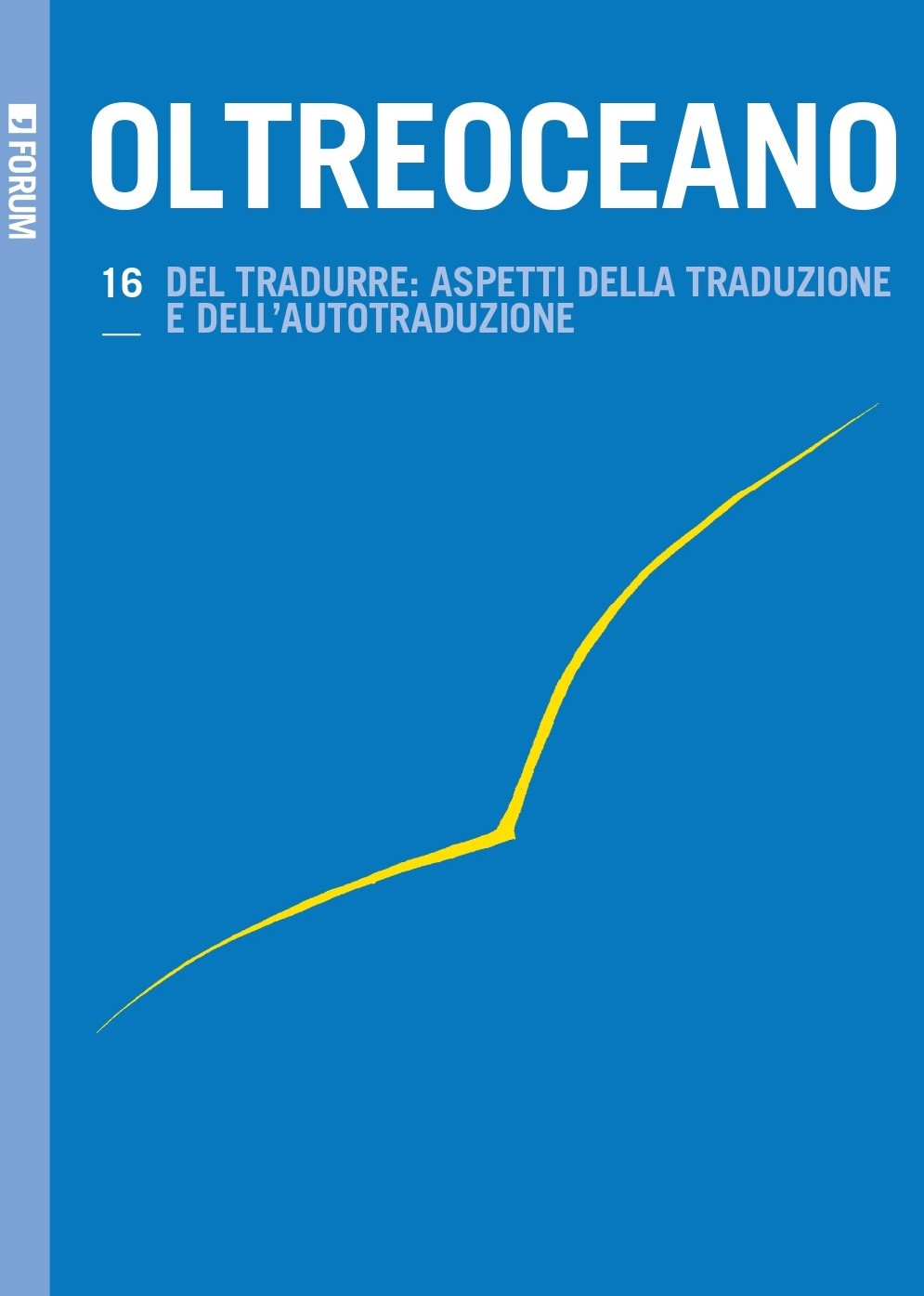Palabras ajenas para un canto propio
Keywords:
elementi autobiografici, problema silenzio, abbandono lingua madreAbstract
A partir de datos autobiográficos, se debate el problema del silencio creado al abandonar la lengua de origen por otra no elegida; se analizan luego las estrategias puestas en acción en un nuevo espacio –aun el uso de palabras ajenas– para encontrar una salida a la necesidad de expresar el propio yo.
Parole altrui per un canto proprio
Partendo da elementi autobiografici, il saggio affronta il problema del silenzio derivante dall’abbandono della propria lingua per una lingua straniera a causa di uno spostamento spaziale; si analizzano poi le strategie messe in campo per trovare una soluzione al bisogno di esprimere il proprio io.
Someone else’s words for one’s own poem
The article starts from autobiographical elements and focuses on the problem of silence that arises when one moves to a distant space, abandoning one’s own language for a foreign one. The article then analyzes the strategies adopted in the search for a solution to the need of expressing one’s self.
Downloads
References
Argentieri, S. (2017): In zona di confine. En R. Campra, Tagliandi (s. p.). Roma: ed. limitada fuera de comercio.
Campra, R. (1993): I racconti di Malos Aires [Formas de la memoria. 1989]. Trad. de G. Toti. Roma: Fahrenheit.
Campra, R. (2006): La lengua, ese país inevitable. En E.Perassi & S. Regazzoni (Eds.), Mujeres en el umbral. De la iniciación femenina en las escritoras hispánicas (pp. 329-348). Sevilla: Renacimiento.
Campra, R. (2013): Tradurre / essere tradotti / autotradursi: peripezie attraverso lo specchio. En F. Fava (ed.). Tradurre un continente. La narrativa ispanoamericana nelle traduzioni italiane (pp. 193-217). Palermo: Sellerio.
Campra, R. (2017): Tagliandi. Roma: ed. limitada fuera de comercio.
Campos, H. de (1977): Post Scriptum. Transluciferação mefistofáustica. En H. de Campos, Deus e o Diabo no Fausto de Goethe (s. p.). São Paulo: Perspectiva.
Echeverría, E. (2010): Il mattatoio. Edición bilingüe [El matadero, póstumo 1871]. Trad., introducción y notas de OTLI. Roma: Aracne.
El libro de oro de los niños (1943): Buenos Aires: UTHEA.
Roffé, R. (2004): Vivir en otra lengua. Apuntes para una charla. El matadero. Segunda época, 3, pp. 201-204.
Shakespeare, W. (1951): El rey Ricardo II [King Richard II, 1597]. En W. Shakespeare, Obras completas (pp. 359-404), Estudio preliminar, traducción y notas de L. A. Marín. Madrid: Aguilar.
Toti, G. (2017): Una poetessa argentina in Roma. Poetincollaggi di Rosalba Campra. Carte Segrete, XI, 35, s. p.
Verdi, M. L. (1993): End. [Id. Falas, 1988]. En M. L. Verdi, Questo frutto altro / Este fruto outro (s. p.). Edición bilingüe, Trad. de Rean Mazzone. Palermo-Sao Paulo: ILA Palma.
Downloads
Published
How to Cite
Issue
Section
License
Copyright (c) 2020 Oltreoceano - Rivista sulle migrazioni

This work is licensed under a Creative Commons Attribution-NonCommercial-ShareAlike 4.0 International License.
The authors undertake to comply with the following conditions, which are considered accepted at the time of submission of their contributions.
The sending of a text implies that it is unpublished and not submitted to be published elsewhere.
1. If accepted, the author shall confer on the publisher the right to publish and distribute it both in paper form and in the online electronic edition. The published articles will be downloadable and made available in open access.
2. Provided that it correctly indicates that the first publication took place in the journal Oltreoceano. Rivista sulle migrazioni the author has the right to: a) reproduce the article in separate extracts or collected in a volume; b) publish the article on their personal website or teaching site provided that these sites are of a non-commercial nature; c) deposit the article in online archives of a non-commercial nature, linked to the institution they belong to or as part of projects for the non-commercial dissemination and open access of scientific works.
The use of contributions by third parties, for commercial or otherwise unauthorized purposes, is not allowed. The publisher declines all responsibility for the unauthorized use of the material published in the journal.












